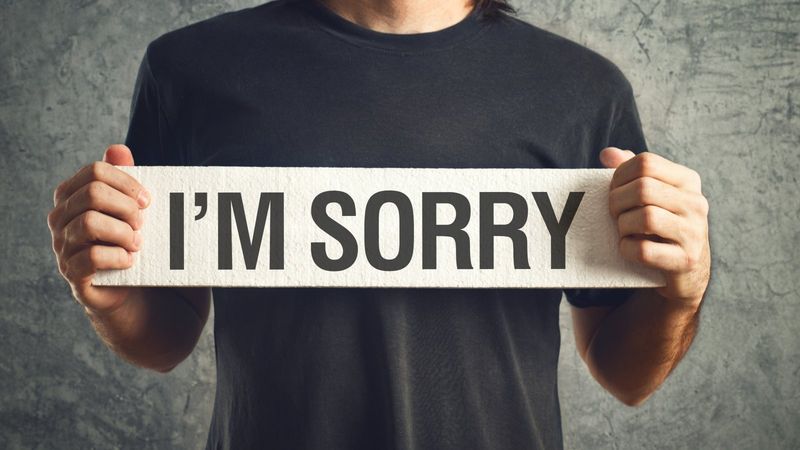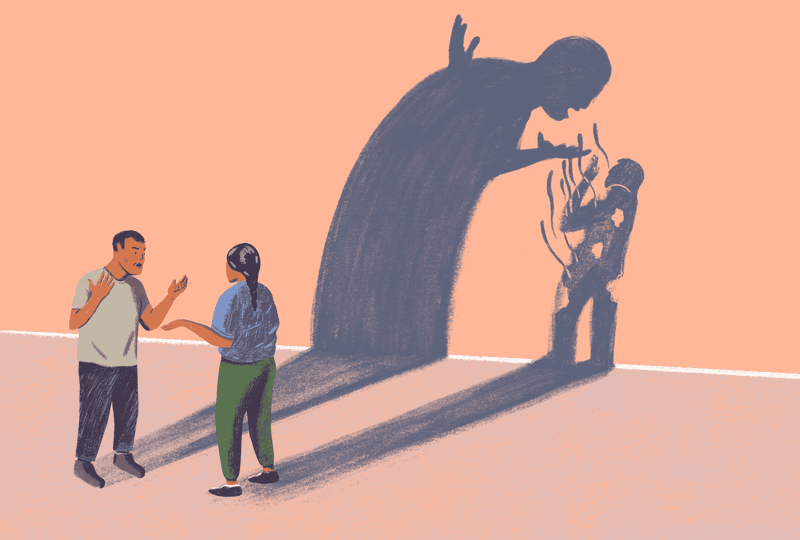18 Toxic Friendships To Steer Clear Of, According To Psychologists

Friendship is often regarded as one of life’s greatest treasures, a source of joy, support, and companionship. Yet, not all friendships are created equal. Some can be detrimental to your mental well-being and personal growth.
Psychologists have identified various toxic friendship dynamics that one should be cautious of. These relationships can drain your energy, erode your self-esteem, and even manipulate your emotions.
Understanding these patterns is the first step in safeguarding your emotional health and fostering more supportive and healthy connections. Let’s explore 18 types of toxic friendships to steer clear of.
1. The One Who Always Turns It Into a Competition

Ever had a friend who turns every achievement of yours into a competition? These friends struggle with being genuinely happy for your success and often respond with a story of how they’ve done something similar, but better.
This constant comparison can breed resentment and anxiety, interfering with your ability to celebrate your accomplishments. It’s exhausting to feel like you’re in a never-ending contest, especially when you’re merely seeking companionship, not rivalry.
Healthy friendships should be based on mutual support and shared joy, not competition. Be mindful of this dynamic, and don’t hesitate to express your feelings to maintain a supportive environment.
2. The Friend Who Disappears When You’re Struggling

Some friends are great when life is smooth but vanish at the first sign of trouble. They might avoid difficult situations, leaving you unsupported during your low moments.
This absence can make your struggles feel even more isolating, as the people you expect to lean on are nowhere to be found. A true friend should stand by you through thick and thin, offering empathy and understanding.
Recognizing this pattern helps you prioritize relationships that are consistently present, fostering connections that are genuinely supportive and reliable.
3. The “Jokester” Who Hides Cruelty Behind Humor

Humor is a wonderful bond in friendships, but when jokes consistently target you or your insecurities, it’s a red flag. Some friends mask their unkindness with humor, leaving you questioning your feelings.
These disguised insults can chip away at your confidence, making you hesitant to share your true self. While it’s normal to tease each other, consistent cruel jokes are not a sign of affection.
Addressing this issue can be challenging, but voicing your discomfort is crucial. True friends will respect your boundaries and adjust their behavior, prioritizing kindness over cheap laughs.
4. The One Who Makes Your Wins Feel Like Their Loss

Imagine sharing good news only to be met with a cold shoulder or a dismissive comment. Friends who make your successes feel like their failures struggle with insecurity and envy.
Their inability to celebrate your achievements can cast a shadow on your happiness, leaving you feeling guilty or undeserving of joy. This dynamic is emotionally draining and detracts from your accomplishments.
Seek relationships where your wins are genuinely celebrated, fostering an environment of joy and mutual support. Surrounding yourself with positive influences enhances your personal growth and happiness.
5. The Chronic One-Upper

In any conversation, this friend always has a bigger, better story. Their need to upstage stems from insecurity and a desire for validation. While initially entertaining, this behavior becomes tiresome and frustrating.
Over time, you may feel overshadowed and undervalued, as if your experiences aren’t significant. This constant overshadowing can erode your confidence and discourage you from sharing.
Cultivate friendships with those who listen and value your experiences, rather than those who consistently compete. Healthy interactions should leave you feeling heard and appreciated.
6. The Drama Magnet Who Pulls You Into Chaos

Drama seems to follow this friend wherever they go, and they love dragging you into it. Whether it’s constant relationship turmoil or endless gossip, their life is a perpetual soap opera.
Being close to such a person can be emotionally exhausting, as you’re often caught in the crossfire of their chaotic lifestyle. You might find yourself constantly navigating tensions and conflicts that aren’t yours to manage.
Choosing friends who offer peace rather than drama enriches your life, allowing you to focus on meaningful and stable relationships.
7. The Friend Who Never Says Sorry—Only Blames

Apologizing is a crucial part of any relationship, but some friends never seem to take responsibility. Instead, they shift the blame, avoiding accountability and leaving issues unresolved.
This pattern can lead to friction and resentment, as you bear the brunt of their refusal to own up to mistakes. Over time, their inability to apologize can erode trust and strain the friendship.
Healthy friendships are built on mutual respect and the ability to acknowledge when one is wrong. Seeking friends who value open communication ensures a more balanced and forgiving relationship.
8. The One Who Secretly Resents Your Growth

Growth and change are natural, but not all friends are supportive of your evolution. Some might harbor resentment, feeling threatened by your progress.
This subtle jealousy can manifest as passive-aggressive comments or lack of encouragement, dampening your enthusiasm. It’s disheartening to realize a friend isn’t as happy for your growth as you’d hoped.
Surrounding yourself with people who cheer for your success and support your journey is essential. These positive influences help you flourish, making your personal development a celebrated experience.
9. The Guilt-Tripper Who Uses History as Leverage

Guilt-trippers are adept at using past events to manipulate current situations. They often remind you of past favors or mistakes to sway your decisions, leaving you feeling indebted or obligated.
This emotional manipulation can drain your energy and create an unhealthy power dynamic. You may find yourself making choices out of guilt rather than genuine desire or agreement.
Establishing boundaries is key to breaking this cycle. A friendship should be a space of mutual support, not manipulation. Prioritize relationships where you feel free to make choices without emotional coercion.
10. The Friend Who’s Supportive Only When They’re Winning

Support should be unconditional, but some friends only show enthusiasm when their own lives are flourishing. When they hit a rough patch, their support for you vanishes, replaced by jealousy or indifference.
This conditional support can leave you feeling undervalued, as if your triumphs only matter when they are on top. It’s a draining experience to feel your worth is tied to someone else’s success.
Seek relationships where support is consistent, regardless of individual circumstances. Friends who celebrate with you through thick and thin provide a cornerstone for genuine and lasting connections.
11. The Energy Vampire Who Never Gives Back

Energy vampires thrive by absorbing your vitality, leaving you feeling exhausted and spent. Their constant need for attention and drama can sap your emotional reserves.
Engaging with these individuals often means dealing with their crises or emotional dumps, while receiving little in return. Over time, their presence can feel like an emotional burden, affecting your mental well-being.
Identifying this dynamic allows you to set boundaries and seek friendships that rejuvenate rather than drain. Prioritizing relationships with mutual energy exchange creates a more balanced and fulfilling social life.
12. The “Therapist” Friend Who Never Shares Their Own Life

Being a supportive friend is admirable, but when you’re always the listener and never the sharer, the relationship becomes lopsided. This friend treats you like a therapist, rarely opening up about their own life.
This imbalance can leave you feeling burdened and unappreciated, as your needs and stories go unshared. A one-sided dynamic lacks the mutual support essential for a healthy friendship.
Encourage reciprocal sharing by gradually opening up about your experiences. Healthy friendships thrive on mutual vulnerability and trust, ensuring both parties feel valued and heard.
13. The One Who Thrives on Triangulation and Gossip

Some friends thrive on gossip and triangulation, constantly involving you in others’ affairs. They create drama by pitting friends against each other, often for their amusement or control.
This behavior is toxic, as it fosters distrust and division within your social circle. Being part of this web can leave you feeling uneasy and uncertain about your relationships.
Choose friendships rooted in honesty and trust, steering clear of those who enjoy stirring the pot. Building a transparent and supportive network enriches your life and encourages genuine connections.
14. The Flake Who Always Has an Excuse—But Expects You to Show Up

Flaky friends are consistently unreliable, often canceling plans at the last minute with flimsy excuses. Yet, they expect you to be available whenever they need something.
This inconsistency can lead to feelings of frustration and disappointment, as you’re left questioning their commitment to the friendship. Over time, it may erode trust and willingness to invest in the relationship.
Prioritize friendships with those who value your time and commitments. Reliable friends show respect for your schedule and contribute to a more stable and fulfilling social experience.
15. The Controller Who Masks It as “Looking Out for You”

Controllers disguise their need to dominate as care or concern, often dictating how you should live your life. They might frame their controlling behavior as looking out for your best interests.
This can undermine your autonomy and confidence, leaving you feeling trapped and manipulated. Their involvement can be suffocating, with their advice more about control than support.
Recognize this behavior and assert your independence by setting clear boundaries. True friends respect your choices and encourage your individuality, offering support without imposing their will.
16. The Friend Who Only Shows Up When It Benefits Them

Some friends are only present when there’s something in it for them. Whether it’s networking opportunities or personal gain, their interest in your life is conditional.
This self-serving attitude can make you feel used and unimportant, as if your friendship is only a means to an end. It’s disheartening to realize their presence is based on personal benefit rather than genuine care.
Seek out relationships where you feel valued for who you are, not what you can offer. Friendships should be based on mutual respect and enjoyment, free from ulterior motives.
17. The Manipulator Who Weaponizes Vulnerability

Manipulative friends use your vulnerabilities as leverage, exploiting your weaknesses for their own advantage. They might seem empathetic, but their intentions are self-serving.
This deceptive behavior can make you feel insecure and emotionally unsafe, as your trusted confidences become tools of manipulation. It’s crucial to be cautious with such individuals, who prioritize their agenda over your well-being.
Building friendships based on trust and sincerity is paramount. Establish boundaries to protect yourself from manipulation and nurture connections grounded in genuine support and understanding.
18. The Friend Who Makes You Feel Lonelier When You’re Together

Being with this friend paradoxically amplifies feelings of loneliness. Despite physical proximity, emotional connection is lacking, leaving you feeling isolated.
Their inattentiveness or preoccupation with their own life diminishes the quality of your interactions. This experience can lead to self-doubt and a sense of invisibility.
Value friendships that offer genuine engagement and shared joy. Seek companions who are present and attentive, fostering a sense of belonging and connection. Prioritizing meaningful interactions elevates your emotional well-being and enhances your social experience.
